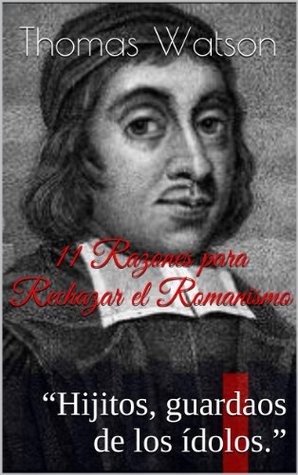- Bible
- Read the Bible
- Bible Versions
- Verse of the Day
- Reading Plans
- Verses by Topic
- Books of the Bible
- Bible Images
- Study
- Commentaries
- Concordances
- Dictionaries
- Encyclopedias
- Sermons
- Bible Atlas & Maps
- BP Wiki
- Devotionals
- Today's Devotionals
- Light of the World
- All Devotionals
- Inspirational Quotes
- More
- Picture Quotes
- Videos
- Inspirational
- Bible Study
- What The Bible Says
- Bible Q&As
- Daily Bread
- Bible by Genre
- Bible Stories
- Random Bible Verse
- Community
- Store
¡Es un error que condena al alma!, en la ley, Dios reclama la grosura del
sacrificio (Levítico 3:3). Así es, todo el culto (adoración) divino, el cual es la grosura del
sacrificio, el Señor lo ha reservado de manera particular para sí mismo; mientras que el
idólatra entrega a los ídolos aquello que en realidad pertenece Dios. La idolatría es
adulterio espiritual. “Porque han adulterado… y han fornicado con sus ídolos”
(Ez.23:37). La idolatría abre la puerta a todos los juicios de Dios. Por lo tanto, los judíos
solían decir acerca de todos los castigos que les habían acontecido que era porque-
“hubo una pizca del becerro de oro entre ellos.”- (Thomas Watson)
sacrificio (Levítico 3:3). Así es, todo el culto (adoración) divino, el cual es la grosura del
sacrificio, el Señor lo ha reservado de manera particular para sí mismo; mientras que el
idólatra entrega a los ídolos aquello que en realidad pertenece Dios. La idolatría es
adulterio espiritual. “Porque han adulterado… y han fornicado con sus ídolos”
(Ez.23:37). La idolatría abre la puerta a todos los juicios de Dios. Por lo tanto, los judíos
solían decir acerca de todos los castigos que les habían acontecido que era porque-
“hubo una pizca del becerro de oro entre ellos.”- (Thomas Watson)
BUY NOW
Kindle Edition, 17 pages
Published March 8th 2014
© 2025 Bibleportal.com All rights reserved.

He was educated at Emmanuel College, Cambridge, where he was noted for remarkably intense study. In 1646 he commenced a sixteen year pastorate at St. Stephen's, Walbrook. He showed strong Presbyterian views during the civil war, with, however, an attachment to the king, and in 1651 he was imprisoned briefly with some other ministers for his share in Christopher Love's plot to recall Charles II of England.
He was released on 30 June 1652, and was formally reinstated as vicar of St. Stephen's Walbrook. He obtained great fame and popularity as a preacher until the Restoration, when he was ejected for nonconformity. Not withstanding the rigor of the acts against dissenters, Watson continued to exercise his ministry privately as he found opportunity. Upon the Declaration of Indulgence in 1672 he obtained a license to preach at the great hall in Crosby House. After preaching there for several years, his health gave way, and he retired to Barnston, Essex, where he died suddenly while praying in secret. He was buried on 28 July 1686.
Thomas Watson was an English, non-conformist, Puritan preacher and author.
He was educated at Emmanuel College, Cambridge, where he was noted for remarkably intense study. In 1646 he commenced a sixteen year pastorate at St. Stephen's, Walbrook. He showed strong Presbyterian views during the civil war, with, however, an attachment to the king, and in 1651 he was imprisoned briefly with some other ministers for his share in Christopher Love's plot to recall Charles II of England.
He was released on 30 June 1652, and was formally reinstated as vicar of St. Stephen's Walbrook. He obtained great fame and popularity as a preacher until the Restoration, when he was ejected for nonconformity. Not withstanding the rigor of the acts against dissenters, Watson continued to exercise his ministry privately as he found opportunity. Upon the Declaration of Indulgence in 1672 he obtained a license to preach at the great hall in Crosby House. After preaching there for several years, his health gave way, and he retired to Barnston, Essex, where he died suddenly while praying in secret. He was buried on 28 July 1686.
... Show more